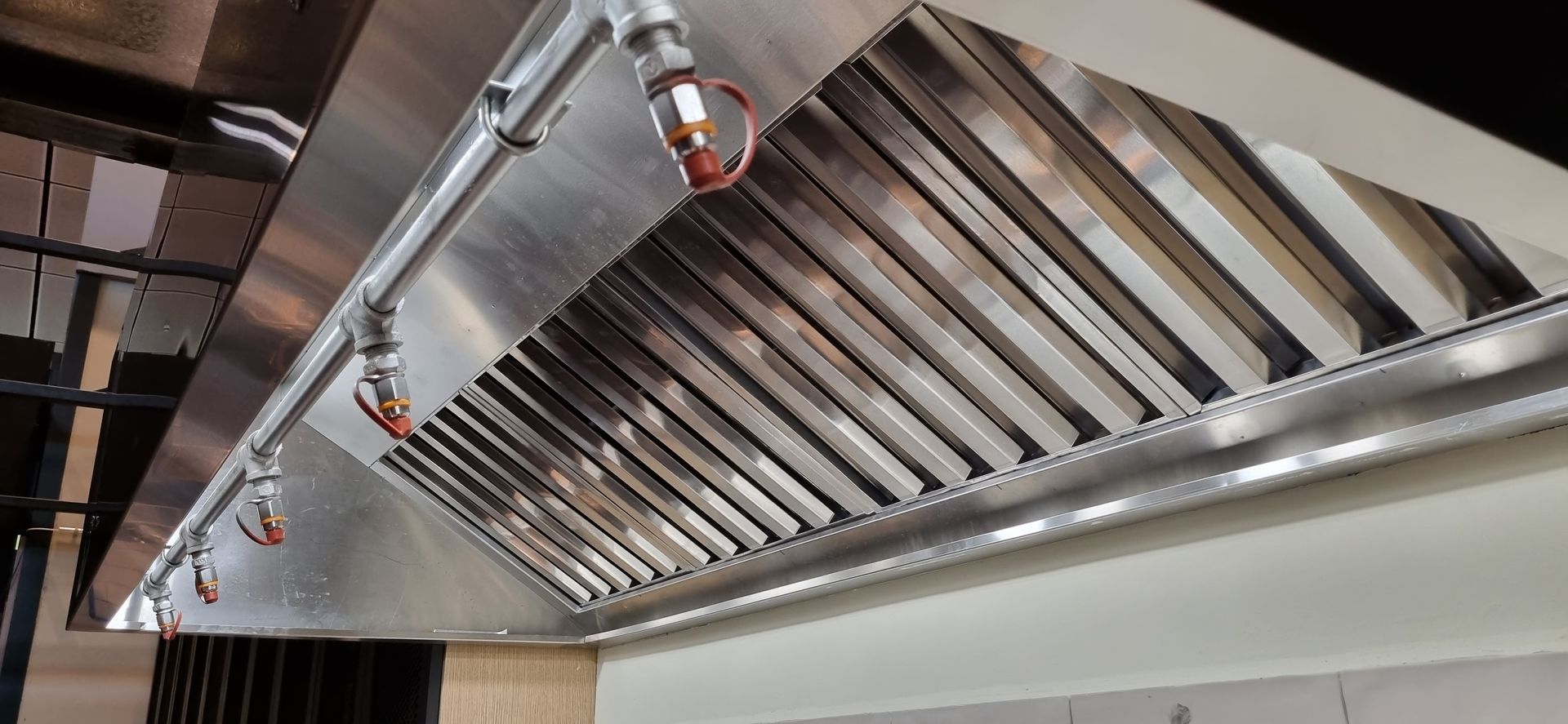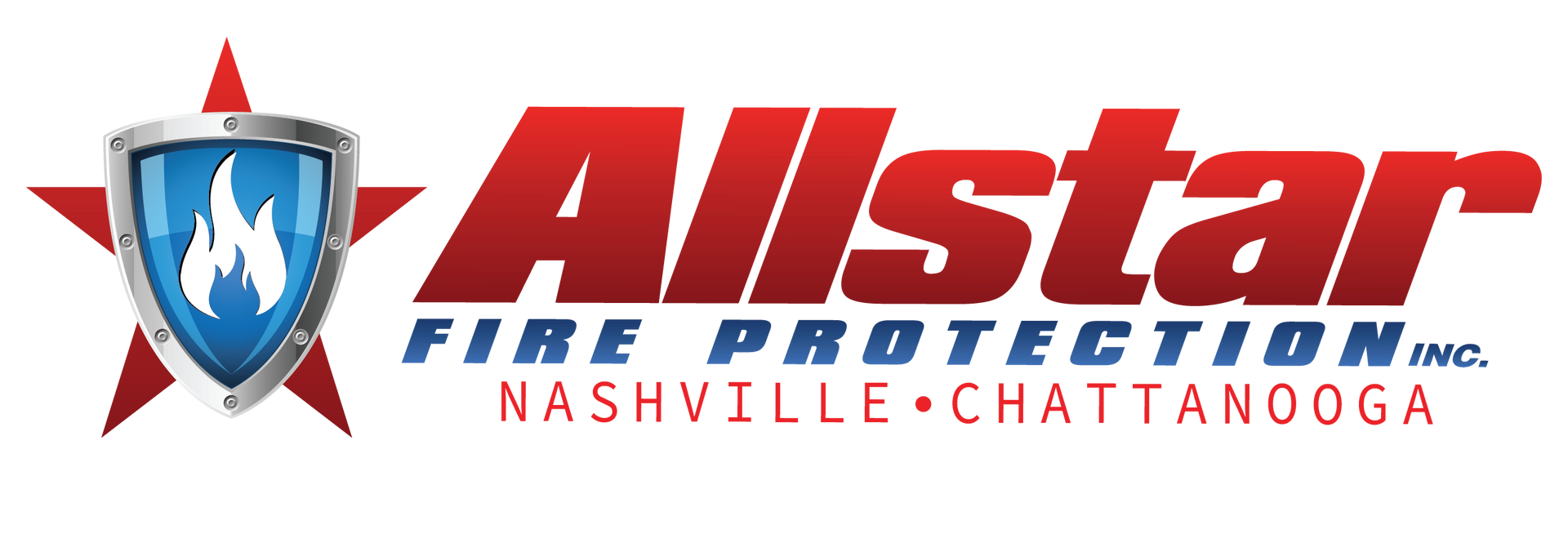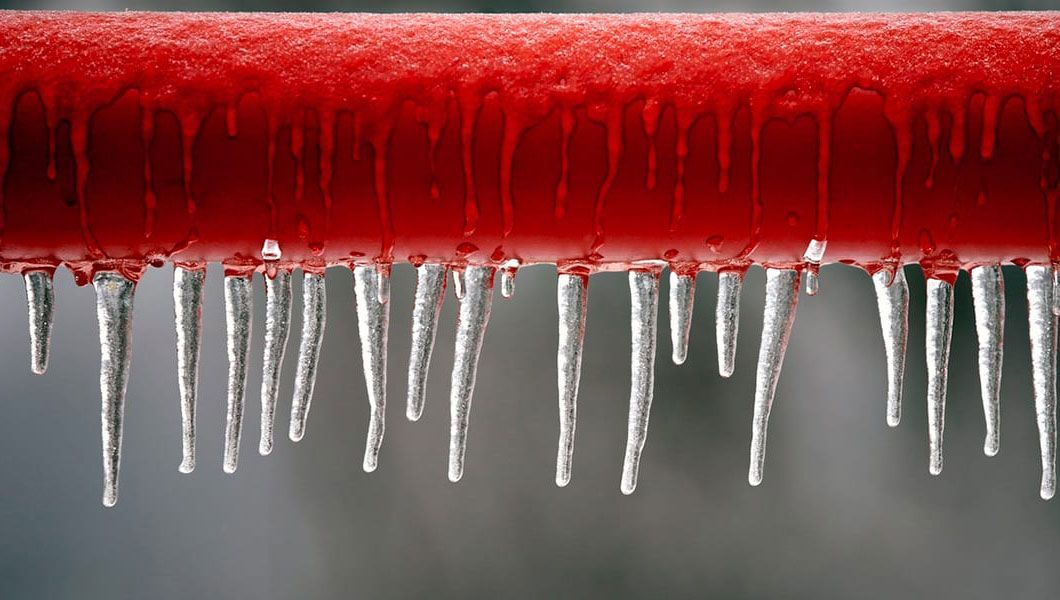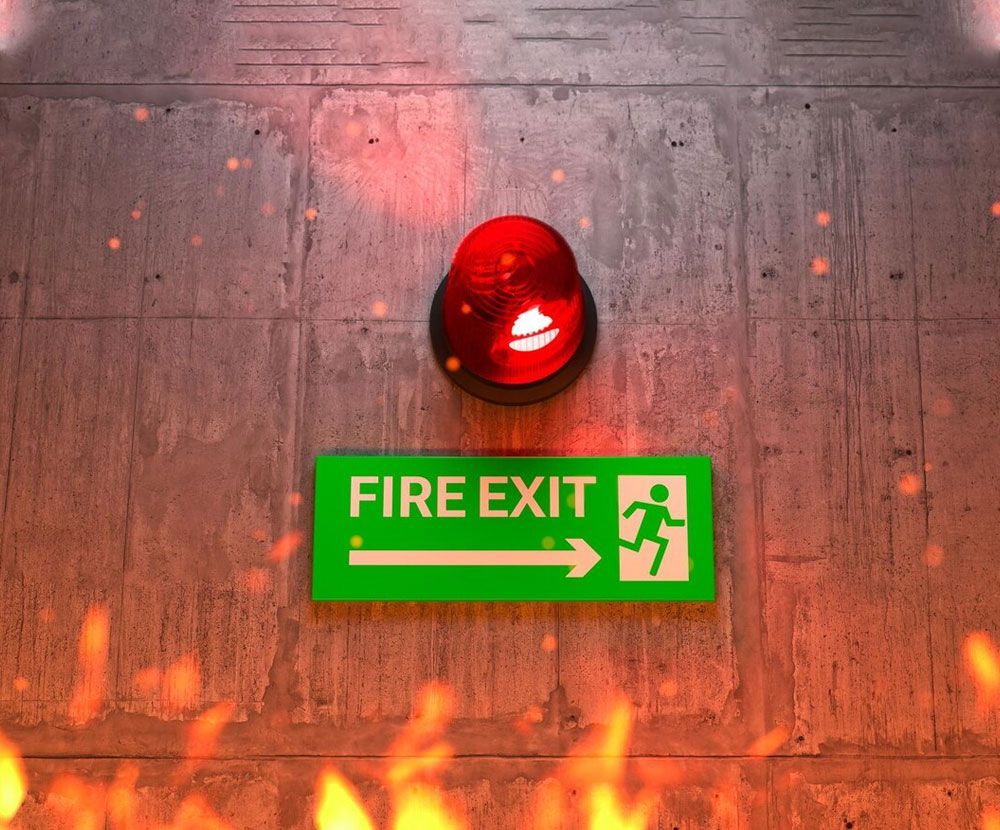
Keeping it Clean: The Importance of Commercial Kitchen Exhaust Hood Inspections
Commercial kitchens are bustling environments, where delicious food is created but greasy vapors and smoke are inevitable byproducts. Here's where kitchen exhaust hoods come in – these essential systems capture and remove grease, smoke, and heat, preventing them from accumulating and potentially igniting a fire.
But just like any filter that traps debris, exhaust hoods need regular cleaning and inspection to maintain peak performance. This blog dives into the world of commercial kitchen exhaust hood inspections, highlighting their importance and what they entail.
Why are Regular Inspections Crucial?
Over time, grease and debris can accumulate in the exhaust hood, filters, and ductwork. This buildup not only reduces the system's efficiency in capturing smoke and heat, but also creates a significant fire hazard. Regular inspections help identify these issues before they become a problem.
Benefits of Regular Inspections
- Enhanced Fire Safety: By identifying and removing grease buildup, inspections significantly reduce the risk of kitchen fires.
- Improved Efficiency: Clean exhaust hoods operate more efficiently, removing smoke and heat effectively and reducing energy consumption.
- Healthier Environment: Properly functioning hoods prevent grease and smoke from circulating in the kitchen, creating a healthier environment for employees.
- Compliance with Codes: Most municipalities have regulations requiring regular inspections of commercial kitchen exhaust hoods.
What Happens During an Inspection?
A qualified inspector will conduct a thorough examination of your exhaust hood system, typically including:
- Visual Inspection: Inspecting the hood, filters, and ductwork for signs of grease buildup, corrosion, or damage.
- Airflow Measurement: Measuring the airflow rate through the system to ensure it meets performance standards.
- Filter Assessment: Evaluating the condition of the filters and recommending cleaning or replacement as needed.
- Roof Cap Examination: Checking the exhaust hood's termination on the roof for proper installation and any obstructions.
Frequency of Inspections
The recommended frequency of inspections depends on several factors, including the type of cooking performed, the volume of food cooked, and the specific municipal codes. Generally, inspections are recommended:
- Monthly: For high-volume kitchens with extensive charbroiling, wok cooking, or solid-fuel cooking.
- Quarterly: For moderately busy kitchens.
- Semi-Annually: For low-volume kitchens.
Working with a Qualified Inspector
Hiring a qualified inspector is essential. Look for inspectors certified by organizations like the National Fire Protection Association (NFPA) or the International Kitchen Exhaust Cleaning Association (IKECA). These inspectors possess the knowledge and experience to ensure a thorough and compliant inspection. Allstar Fire Protection has trained, certified, and knowledgeable professionals to provide these services.
Maintaining a Clean Kitchen Exhaust System
Regular inspections go hand-in-hand with proper maintenance. Maintaining a cleaning schedule recommended by your inspector and cleaning crews trained in kitchen exhaust cleaning best practices is crucial.
Conclusion
Regular inspections and proper maintenance of your commercial kitchen exhaust hood system are essential for fire safety, optimal performance, and adherence to local regulations. By prioritizing these measures, you create a safer work environment for your employees, and ensure your kitchen continues to deliver delicious meals without a hitch.
For more information, contact Allstar Fire Protection.
Allstarfireprotection.com or 615-865-5600.






